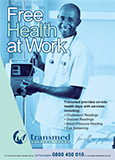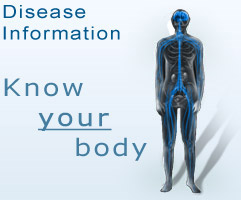Substance abuse
What is substance abuse/dependence?
Substance abuse /dependence is an abnormal pattern in a person's use of an addictive substance. This indicates loss of control over its use, is associated with important medical problems and may be associated with mental distress.
Signs of substance abuse/dependence
Substance abuse/dependence is likely if you experience three or more of the symptoms listed below at any time in the same 12-month period.
1. Tolerance:
Defined by at least one of the following:
a. increased amounts of the substance is needed to achieve intoxication or the desired effect; and/or
b. continued use of the same amount of the substance has a markedly lower effect.
2. Withdrawal:
Defined by at least one of the following:
a. typical symptoms (called withdrawal syndrome) occur when the substance is not used for some time; and/or
b. the substance or a closely related substance is used to relieve or avoid the withdrawal symptoms.
3. The substance is taken in larger amounts or over a longer period than was intended.
4. There is a persistent need or there are unsuccessful efforts to cut down or control use of the substance.
5. A great deal of time is spent in activities necessary to obtain the substance, use the substance or recover from its effects.
6. Important social, work or recreational/relaxation activities are forfeited or reduced because of substance use.
7. The substance use is continued despite knowledge of constant or recurrent physical harm or a psychological problem that is likely to have been caused or aggravated by the substance.
Note: If findings of tolerance or withdrawal are present, the person is said to have physiological dependence as well.
Qusestionnaire to determine potential alcohol abuse or dependance
Participation in the programme is voluntary and we assure you that the information supplied will be handled with the utmost confidentiality at all times.
Introduction
This information is provided to enable you to evaluate the possibility that you should be seeking help for alcohol dependence. We strongly advise that you complete it and then act if the questionnaire confirms that you have a problem. It is called the CAGE Questionnaire (see 1-4 below).
Items:
(1) C: cut down
(2) A: annoyed
(3) G: guilt
(4) E: eye-opener
| Question | Response | Points |
|---|---|---|
| Have you ever felt you should cut down on your drinking? | no | 0 |
| yes | 1 | |
| Have people annoyed you by criticising your drinking? | no | 0 |
| yes | 1 | |
| Have you ever felt bad or guilty about your drinking? | no | 0 |
| yes | 1 | |
| Have you ever taken a drink first thing in the morning to steady your nerves or rid yourself of a hangover? | no | 0 |
| yes | 1 | |
| Total score | ||
Interpretation of score:
Minimum score: 0
Maximum score: 4
1+ Cut down
2+ Annoyed
3+ Guilt
4+ Eye-opener
The higher the score, the greater the likelihood for alcohol abuse. A score of two or more is defined as a positive test.
References
1. AMERICAN PSYCHIATRIC ASSOCIATION. 1994. Diagnostic Criteria from DSM-IV. Pages 108-109.
2. AMERICAN PSYCHIATRIC ASSOCIATION. 2006. Guidelines on substance use.
3. AMERICAN PSYCHIATRIC ASSOCIATION. 2006. Substance Use: Quick Reference Guide.
4. COUNCIL FOR MEDICAL SCHEMES. 2006. Draft Guideline for Bipolar Disease.
5. DEPARTMENT OF HEALTH. 2006. Guideline for alcohol withdrawal: 2003.
6. FRANCES A, FIRST MB & PINCUS HA. 1995. DSM-IV Guidebook. American Psychiatric Press, Inc. Pages 131 - 134.
7. http://www.uptodate.com/home/index.html
8. U.S. DRUG ENFORCEMENT ADMINISTRATION. Website: http://www.usdoj.gov/dea/pubs/abuse/chart.htm
9. UNIVERSITY TASMANIA. 2006. Lecture on substance.
 TransmedBanner4.jpg)

